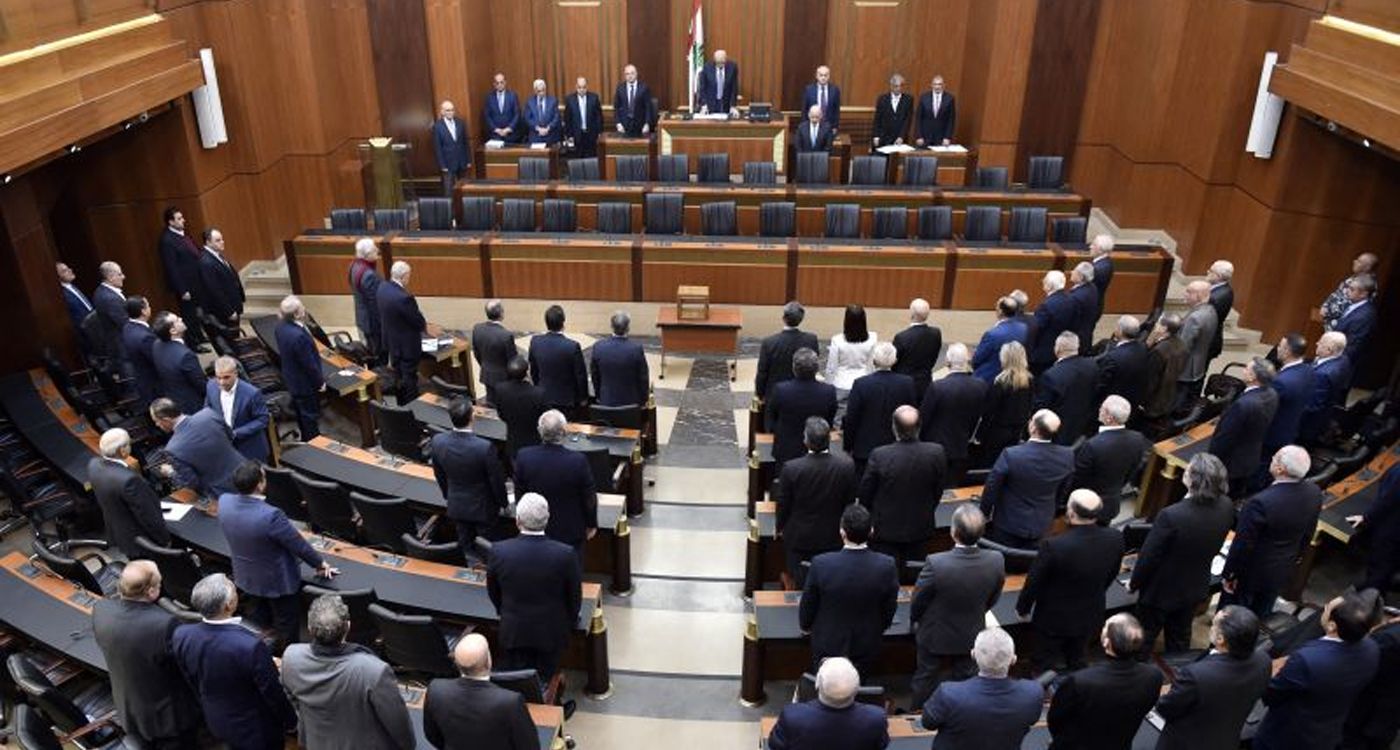
The Lebanese presidential issue is ensnared in a deadlock, caused by both domestic and international challenges. Each time one obstacle is removed, another, often more complex, emerges, as if the doors of the Baabda Palace are destined to remain closed until the regional crises are comprehensively addressed.
The Lebanese political landscape is currently beset by challenges, ranging from persistent disputes among political factions to the war in Gaza and military confrontations between Israel and Hezbollah. The painful blows that Tel Aviv has inflicted on Hezbollah—including the assassination of its leaders—further complicate the situation which is exacerbated by Israel’s potential response to Iran’s missile attack and thorny diplomatic efforts for a ceasefire in the region.
Government sources suggest that the American-French ceasefire proposal is unlikely to bear fruit, as Washington is adopting a cautious stance while awaiting the outcomes and implications of a potential Israeli strike on Iran. Consequently, Lebanon will not elect a president until the internal situation stabilizes and the regional trajectory becomes clearer.
An MP from the Democratic Gathering Bloc, who participated in discussions with political factions, stated, “We have not succeeded in bridging the differences. Everyone is awaiting developments; some are hoping for the victory of the ‘resistance’ and its regional axis led by Iran, while others are hoping for a successful diplomatic settlement in the region. Meanwhile, Benjamin Netanyahu, backed by American support, has decided to dismantle Iran's influence and proxies, starting with Hezbollah, by destroying its military apparatus and targeting its leadership. This strategy aims to transform Hezbollah into a political party, ensuring the safe return of settlers to northern Israel and framing the Gaza conflict as the last war in the region, ultimately paving the way for a comprehensive and just peace.
The assassination of Hezbollah’s Secretary General Hassan Nasrallah has fundamentally disrupted the ‘resistance’ axis project led by Iran, while the absence of the “sayyed” has sparked a succession struggle between two factions: one that recognizes the religious authority of Qom in Iran (the most significant center of Shia Islamic learning and jurisprudence) and another that adheres to the religious authority of Najaf in Iraq.
With the suspected killing of Hashem Safieddine, a close ally of Iran and a leading candidate to succeed Nasrallah, the agreement on succession faltered. Consequently, Nasrallah’s deputy, Naim Qassem, assumed leadership of the party. At the same time, Iran’s Supreme Leader Ali Khamenei swiftly appointed Mohammad Reza Fallahzadeh of the Iranian Revolutionary Guard's Quds Force, to oversee Hezbollah until a new secretary-general is elected. This move ensures that Iran maintains control over the Shiite group’s leadership and decision-making during this critical period, thereby preventing any missteps or uncalculated actions.
In the meantime, House Speaker Nabih Berri has taken charge of the coordination between Amal and Hezbollah regarding strategic options.
Israel, which says it declared war on Hezbollah, not on Lebanon, seeks to end the conflict on its own terms, which include the transfer of weapons north of the Litani River and Hezbollah's disarmament in accordance with UN Security Council Resolution 1559. But Berri commented on this resolution, stating “It is now behind us, may it be referenced and not revisited.”
According to Amal and Hezbollah sources, Resolution 1559 is a contentious internal matter, that lacks the same consensus as Resolution 1701. However, despite nominal consensus, opposition sources contend that Hezbollah has not complied with it. They also highlight that Resolution 425 (1978) was implemented in 2000, despite being controversial. Ultimately, the enforcement of international resolutions is a legal obligation for the State, regardless of how long it may take.
Western diplomatic sources point out that everyone is awaiting Israel's anticipated response to Iran. Will it be merely symbolic in line with Washington’s directives, or will it be aimed at clipping the wings of Iran’s proxies and influence in the region?
Israel is systematically isolating Lebanon from the outside world by enforcing a monitored and precise blockade around its air, sea, and land borders, following the destruction of most legal and illegal crossings between Lebanon and Syria. Most of these measures aim to expedite the disarmament of Hezbollah, requiring the group to either surrender its weapons to the Lebanese army or return them to Iran as part of an international plan.
Israel's strategy to neutralize Hezbollah's military capabilities serves as a prelude to a potential strike on Iran, currently under deliberation between Israel and Washington to prevent a wider regional conflict. According to sources, a US military official has indicated that Israel's response will be unexpected for Iran, as it will remain uncertain about when, how, or where the strike will occur. However, the crucial question remains: Will Israel adhere to American directives?
An American official observes about Netanyahu, “He makes commitments but never follows through, and when questioned, he simply responds, 'I never promised to implement anything.'” In light of this, will Israel's response be sufficiently restrained to prevent war and open the door for a major settlement in the region under Washington's guidance?



Comments